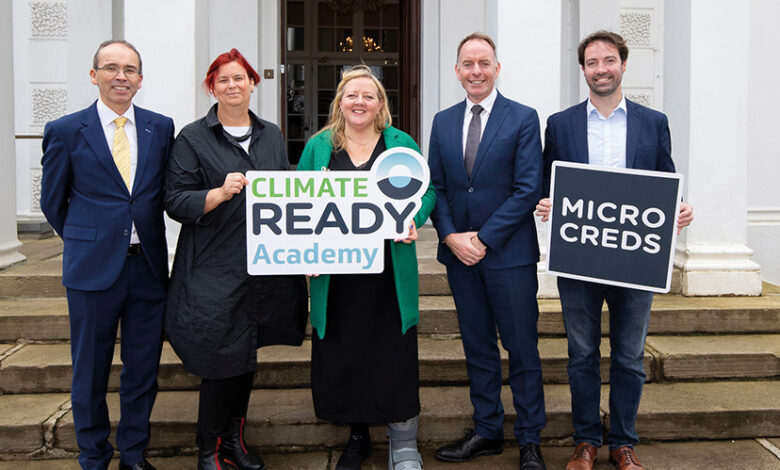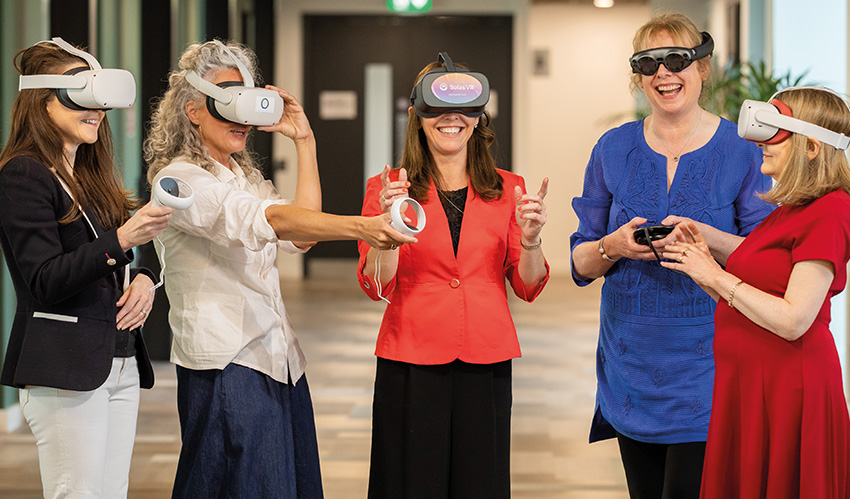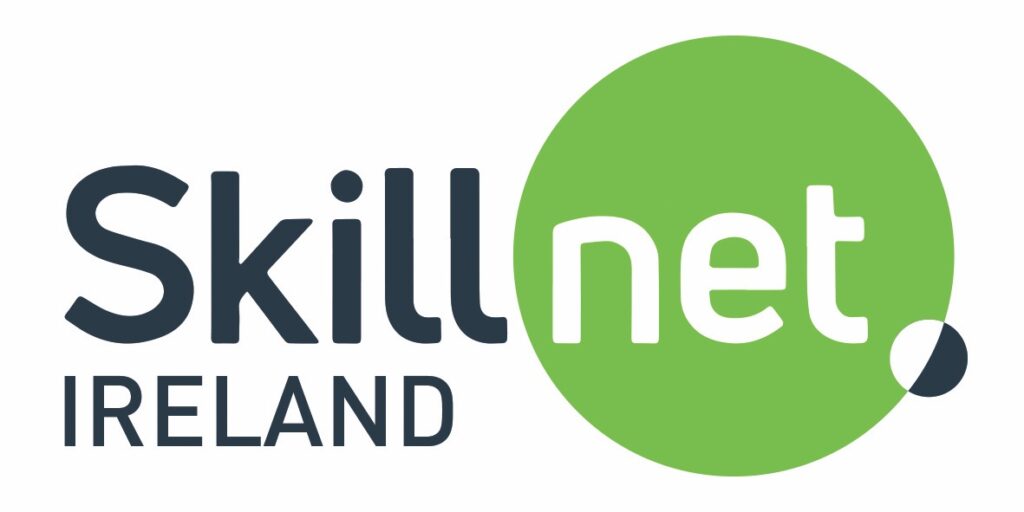Talent for the future world of work

Moving from one crisis to the next has almost become the norm for business leaders over the last seven years. With an open, globalised economy, Ireland is impacted more than most by global macro trends. Focused on talent development, Skillnet Ireland ensures companies have the skills in place to weather short-term shocks and prepare for long-term challenges.
From Brexit to the pandemic, war in Ukraine to record inflation, leading organisations in a permanent state of flux is challenging and feeling at ease with the often-unknown direction of change can seem elusive.
Few would argue that the two most important megatrends of the next 10 years and the future world of work will be climate change and digitalisation. While we have all been keenly focussed on addressing both, the links between the two are impossible to ignore. As the path toward a sustainable, low-carbon economy becomes clearer, it is evident that climate change and digitalisation are intertwined in more ways than one.
Building a climate-resilient economy
Ireland is taking proactive steps to building an environmentally sustainable and climate-neutral economy by 2050. The roadmap to achieving this target is underpinned by the Climate Action Bill, which commits to a 51 per cent reduction in carbon emissions by the end of the decade. As the impact on individual sectors takes shape, it is inevitable that industries will undergo radical structural transformation as the transition gathers pace.
Ireland’s ambition to transition to a low carbon, sustainable economy will be driven by the preparedness of businesses and the workforce, demanding new skills. What is also clear is that new technologies will play a fundamental part in this change. Digitalisation enables new and greater forms of transparency, collaboration, and control. The ability to rapidly leverage data not only helps inform decision-making around production and consumption, but also uncovers many possibilities in terms of research, innovation, and sustainable business actions.
Mark Jordan, Chief Strategy Officer at Skillnet Ireland says: “Digital transformation is colliding with global megatrends like climate change. However, as we have witnessed over the past year, if digitalisation and emerging technologies like AI, IoT and blockchain are harnessed correctly, digital change can have a positive and lasting impact across sectors, boosting the efficiency and competitiveness of businesses.
“To capitalise on the opportunities presented by digitalisation and climate adaptation, it is important to recognise where both forces intersect. Through Climate Ready, Skillnet Ireland will continue to work with industry to deliver leading-edge workforce development programmes that are agile and reflective of the transition to a circular economy.”
Enabling innovation and talent
In early 2022, Skillnet Ireland published research on Talent for the Green Economy in partnership with the Economic and Social Research Institute (ESRI). The report found specific skills gaps which are holding back businesses in developing and implementing sustainability strategies.
The top skill sets needed in the medium term to support the transition to a low-carbon economy identified by enterprises include: waste management skills; corporate sustainability strategy skills; carbon management skills; and sustainable finance skills.
This research reveals that many companies are already working on strategies and putting in place policies to identify the specific skills required to support enterprise innovations with environmental benefits. In response to the ESRI research, Climate Ready Academy has recently launched a Sustainability Leaders Programme which supports leaders in integrating sustainability into their business strategy.

“To capitalise on the opportunities presented by digitalisation and climate adaptation, it is important to recognise where both forces intersect. Through Climate Ready, Skillnet Ireland will continue to work with industry to deliver leading-edge workforce development programmes that are agile and reflective of the transition to a circular economy.”
Micro credentials for climate change transitions
Created in response to the Government’s Climate Action Plan and the Climate Action and Low Carbon Development Bill, Skillnet Ireland’s Climate Ready initiative is designed to equip leaders with the practical skills and knowledge needed to prepare for climate change – delivering real results for the economy, workforce, and climate. The demand for, and engagement with, the Climate Ready programme has been exceptional, supporting more than 1,600 companies and 3,200 people across all sectors in its first year.
Jordan says: “We are seeing high levels of interest from businesses in taking action through their engagement with our talent development and upskilling supports in areas from energy management, offshore wind, biodiversity, waste and the circular economy, transport, sustainable finance and MMC [modern methods of construction]. We are seeing similarly high demand for digitalisation programmes through our 72 Skillnet Business Networks including artificial intelligence, advanced manufacturing, data science, cybersecurity, and engineering.”
In October 2022, Skillnet Ireland launched the first enterprise-led micro-credential digital badge programmes dedicated to climate action in Ireland, through its Climate Ready Academy and in partnership with the University of Limerick (UL). The three micro credential programmes – Energy Leaders, Waste and Circular Economy Leaders, and Sustainability Leaders – are designed to incentivise and support employees in developing practical environmental improvements for their businesses.
University of Limerick President Kerstin Mey said: “This is a great example of how we collaborate with industry through Skillnet Ireland and the Climate Ready Academy to deliver a new form of learning which is based on the micro-credential earned through the participation in each individual programme. The stackable micro-credentials will enable participants to apply practical skills for climate action within their business and obtain a Level 7 Certificate awarded by our university.”
Skillnet Ireland’s focus is on driving business success and enabling innovation within both multinationals and SMEs. Its talent development initiatives have been powerful in driving innovation across a wide range of areas including digitalisation, climate and building talent for the future world of work.
W: www.skillnetireland.ie/think-talent / www.climatereadyacademy.ie






